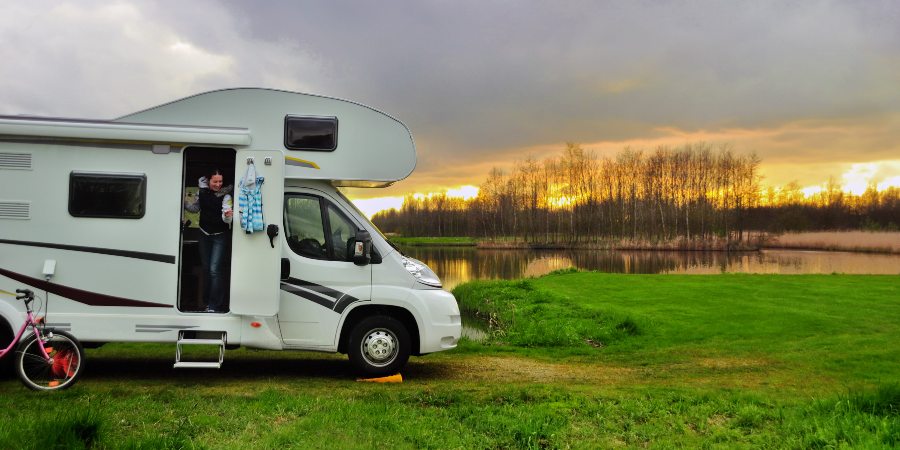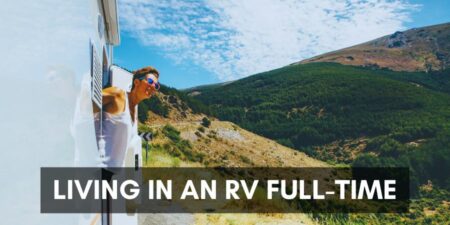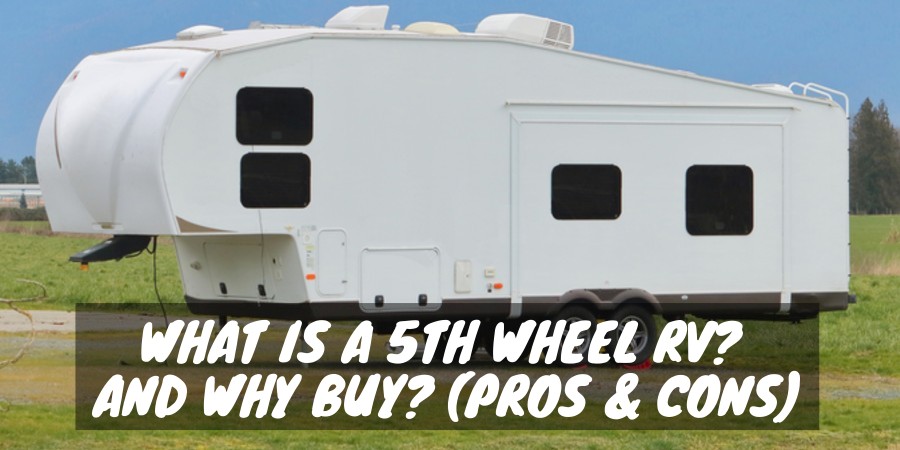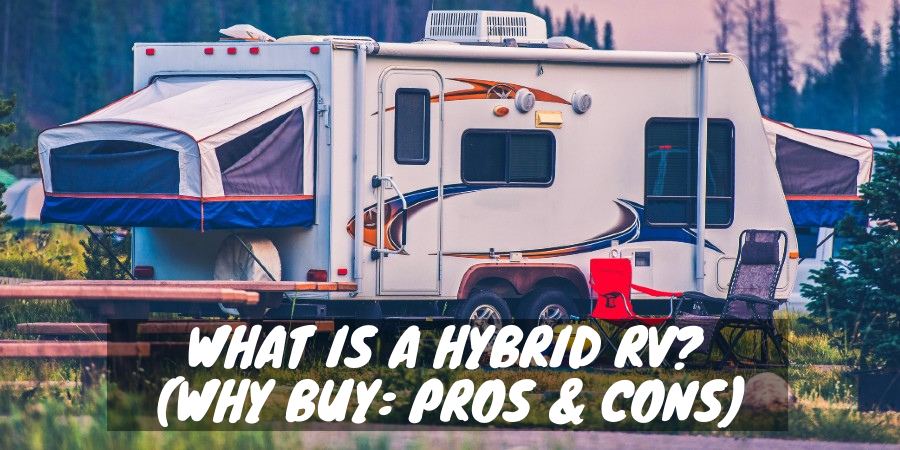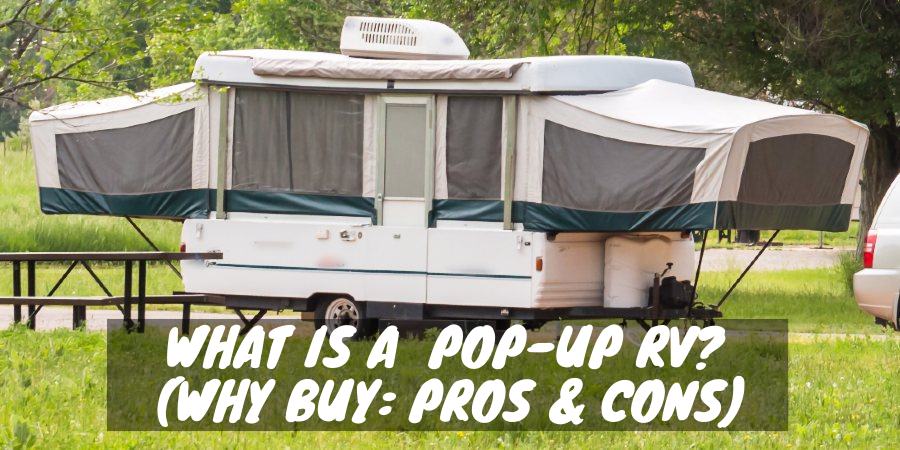If you’ve ever thought about becoming a full-time RVer, you may wonder what it is they do all day. The truth is all full-time RV lifestyles and daily routines are different. However, I can explain an average day in the life of various full-timers, from retirees to working couples to families and solo travelers.
As a full-time RVer closing in on a decade of experience, I have a good idea of what a day in the life looks like, so you can decide if this lifestyle is for you!
Real-Life Facts of the Full-Time RV Lifestyle
Before diving into the nitty-gritty of what a typical day looks like for various groups of full-time RVers, I want to point out some things most people misunderstand about the lifestyle.
Full-Time RVers Don’t Travel as Often as You Think
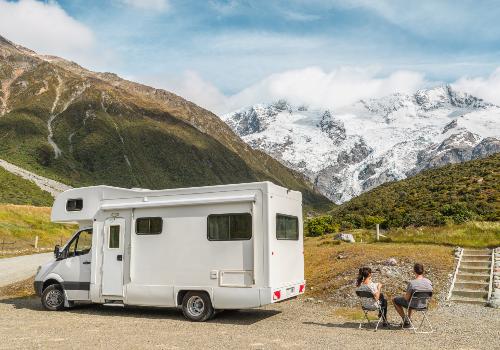
The first idea many people get wrong is assuming RVers move campsites constantly. The opposite is true for most full-timers, as setting up and tearing down camp is time-consuming and often stressful.
Most full-time RVers choose to stick around at each camping location for 2-4 weeks at a time so they can relax, see all the local attractions, save money on fuel, and take advantage of long-term campsite rental discounts.
State and national parks typically have a two-week limit per stay, and most RVers who love these campgrounds choose to utilize their full allotment of camping days before moving to the next.
Monthly rates at private RV parks are often just a bit more than what you’d pay for a week’s stay at the daily rate, and grouping 3-6 months together as a package can add to the savings.
Staying within budget drives most full-timers to enjoy the discounts a more extended stay provides. In addition, it’s more conducive to people who work remotely from their RV or partake in workamping contracts.
Full-Time RVing Is Cheaper than Residential Living
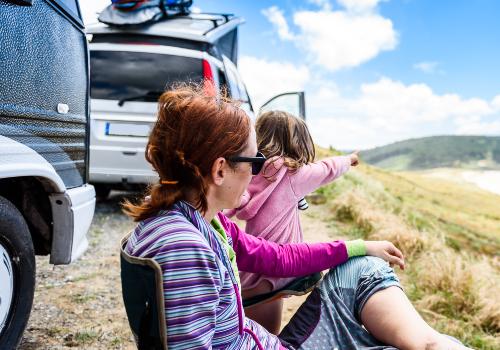
Another myth about full-time RVing is that people choose this lifestyle because they are down on their luck or can’t afford a home or apartment.
While many RVers choose to live a modest and budget-friendly lifestyle, the reality is that RV expenses are the same, if not more, than what people were spending in their previous residential life.
You may give up mortgage or rent payments but gain RV-financing charges, massive fuel expenditures, and campsite fees, which balance spending out.
Remember that it’s not cheap to live and travel in any size recreational vehicle full-time, and knowing what you can afford will determine whether or not this life is a good fit for you.
Full-Time RVing Is Always Exciting
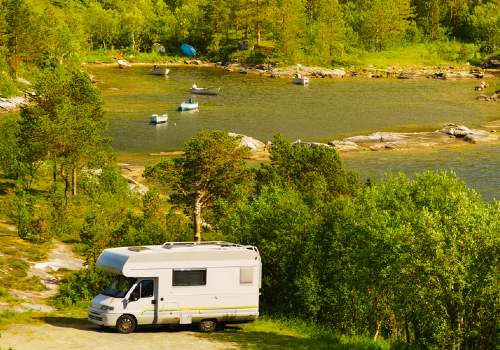
I will admit that in a single year of my full-time RVing, I quickly built up an impressive array of experiences. It would have taken me ten years or more to accrue in my previous life with a house and job with a two-week vacation.
I won’t trade my freedom to explore this wonderful country by giving up my full-time RV life, but I won’t lie about it being all fun and games every day.
Full-timers have many days where seeing the doctor or dentist, maintaining the camper, doing laundry, working, or other everyday tasks take precedence over hiking that awesome trail or snorkeling in the ocean.
I have full-time RVing friends who have the budget and the energy to go-go-go all day, almost every day. However, the rest of us typically go exploring only two or three times a week and hang out around the campground in between.
Day in the Life of a Full-Time RV Retiree
Of all the full-time RVing groups, the retirees, whether old or young, have the financial stability to enjoy a more leisurely lifestyle that most people associate with RV life.
Some will have enough passive income to see and do all they want, while others will need to budget to enjoy their life on the road.
Activities and relaxation will be a big portion of your day. Many retirees love to find snowbird-friendly RV parks that cater to their needs with various activities and events that include meals.
Expect to start your day by waking up whenever you feel like it unless you’re joining a group for an early round of golf or have another activity planned.
Most retirees take their time over morning coffee and read the news either online or, as crazy as it sounds, the paper version. Some may go down to the clubhouse for donuts or breakfast.
After breakfast, the morning hours may include RV cleaning and maintenance tasks, grocery shopping, laundry, dog walking, or socializing with camping neighbors.
If there are sightseeing locations to explore, they’ll head out for the day to enjoy them.
Afternoons consist of lunch dates at a restaurant or participating in a class or club within the RV park. Reading and naps are also common.
Evenings are for joining in games at the clubhouse, having a cookout with friends, having a quiet dinner alone, or going out to eat. Before bed, most will take a slow walk or golf cart ride about the campground, walk dogs, and chat with fellow campground guests.
Day in the Life of a Full-Time RV Couple with Jobs
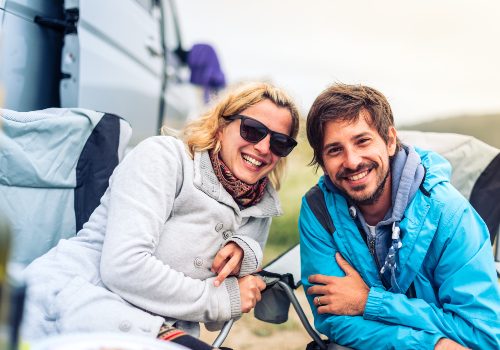
There is no average day in the life of a full-time RVer who works.
Working full-time RVers need time each day to complete their jobs, and couples who travel need to perfect the work/life balance so it goes smoothly.
A day in the life of a working RVing couple will differ depending on what type of employment they have and how many hours they need to devote to it each week.
Full-time RVers That Workamp
A couple who hires on at a campground for a workamping gig may be up at 7 am for breakfast before they head out to maintain the RV park’s campsites and restrooms or work the office handling reservations and incoming guests.
Most private RV park workamping jobs are 24-40 hours a week each, in exchange for a free campsite, a paid hourly wage, and other perks. As a result, you’ll most likely have a schedule that has both of you working the same shift four to eight hours a day, three to five days a week.
Workamping positions at a state or national park may only require 20 hours a week combined for a couple in exchange for a free campsite. That means only one person can work all of the hours if need be.
The benefit of workamping as a couple is that it allows you to keep the same schedule. Knowing exactly when you’ll be free to pursue your interests and see the local sights is perfect for the RVing lifestyle.
Full-time RVers That Work Remotely

The key to the most successful full-time RV couples is trying to keep the same working hours.
Many full-time RVers have employment that allows them to work remotely via the computer, which means you’ll have to set aside time each day to complete work.
Depending on the job, you may need to be online for specific hours daily, or you may be a freelancer who has the luxury of a more flexible work schedule.
Many RV couples find an income through running social media channels, selling crafts or products, or offering campground-friendly services such as dog walking or RV washing or repairs.
Most people I know who work remotely from RVs have a flexible work schedule and get the “job” out of the way in the morning hours, leaving the afternoon free for sightseeing or relaxation.
Some couples only work every other day to allow more time to do what they want.
Other RVers are night owls and prefer to work late into the evening, so they can sleep in or have mornings open for hiking, fishing, or golf before the day gets too hot.
However, all RVing couples still need to do the daily RV chores such as monitoring holding tank levels, filling propane, keeping their campsite clean, doing laundry, and attending to pets if they have them.
Day in the Life of a Full-Time RV Family
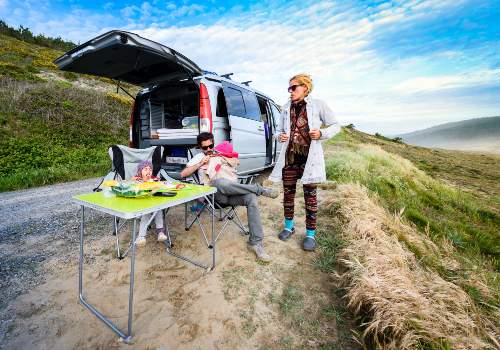
Full-time RV families have the additional burden each day of making sure kids get their educational needs met, along with parents possibly needing to work as well.
A typical day in a couple’s life with two school-age children can be all over the place.
However, most start the day with a leisurely breakfast, followed by a couple hours of online or parent-led instruction. Parental styles determine how strict or lax schooling schedules are.
If parents need to work, the kids may be sent outside after school lessons to play and find activities at the campground to keep them busy for the afternoon. As a result, full-time RV kids are becoming more common across all US campgrounds during all months of the year.
I often see parents alternate working hours so one can always keep an eye on the kids, or only one works to sustain an income to keep RVing and pay for travel.
Most full-time RVers with kids spend most of each day exploring the campground or local sights as a family, meal prepping and cooking, and making sure kids are completing school lessons.
Full-Time RV Living Family of Six (Video)
Day in the Life of a Solo RV Full-Timer
For solo RVers, the full-time life will have a structure custom-fit to their likes and needs. But, unfortunately, they also take on all the burdens of travel planning, food shopping, cooking, camper maintenance, and work schedules that can get overwhelming.
A day in the life of a solo RV full-timer starts with waking up whenever they feel like it, or it may revolve around work or other commitments.
After breakfast, you’ll most likely deal with pets and knock out basic RV chores like dumping waste tanks or tidying up the interior and exterior of your camper.
If you work remotely, you’ll plan when to complete your projects for the day. If you’re plotting out your next destination, you’ll spend time researching travel routes, camping locations, and booking reservations.
Most solo RVers I know plan their travels to spend days exploring local museums and other attractions, pursuing favorite hobbies, or visiting family or friends in the area.
Want to Connect With a Community of Over 1,078 RV Enthusiasts?
While they are out, they pick up groceries or supplies. If they don’t have a wireless internet hotspot, they often spend an hour or so at a local coffee shop or library to send emails or research their next RV trip.
Many solo RVers enjoy campgrounds that offer potlucks or activities so they can socialize with fellow camping enthusiasts and make new friends.
Evenings may include:
- Taking part in a cookout
- Chilling on the patio with a fire
- Reading
- Making sure bills are paid
- Putting in a couple more hours of work
Solo RVers have no one but themselves to account or compromise for, which enables them more freedom to do all the things that make them happy each day.
Day in the Life of Full-Time Off-Grid RVers
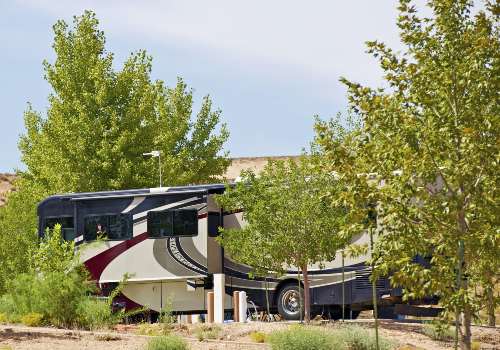
Full-time RVers who spend a lot of time off-grid have a busier day in the life, as they need to spend more time ensuring they have all the necessities to camp comfortably.
Boondockers may spend the mornings cooking breakfast over the campfire or grill and then checking that the generator has enough fuel or that the solar panels and charge controller are working correctly.
You’ll spend time planning out your lunch and dinner meals so you can prep ahead of time and make sure you ration it out so food lasts until you can restock.
Couples and family members pitch in to ensure the RV and campsite stay clean, and things like the firewood pile are ready to go.
Staying outside as much as possible lowers the use of RV appliances and lights, so you don’t strain your propane, gas, or solar resources.
After getting out and enjoying the fresh air and activities at your camping location, you may be near enough to civilization to head into town for lunch or to refill propane tanks and pick up supplies.
If you’re in a remote location, you’ll need to keep an eye on RV tank levels so you have enough fresh water to last the trip and you don’t overflow your waste tanks.
Evenings for off-grid full-time RVers typically end up around a campfire, cooking and eating a meal, chatting, playing musical instruments, and stargazing.
What a Full-Time RV Travel Day Looks Like
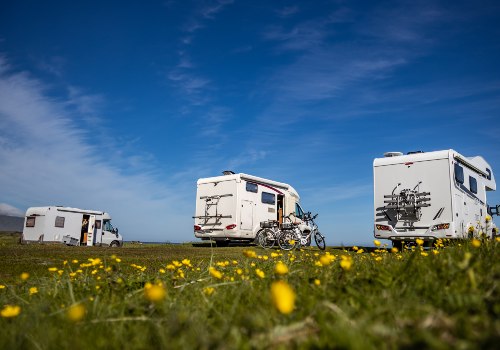
Time constraints for RVers are less structured, but that doesn’t mean they can come and go from campgrounds as they please. Check-in and check-out times must be adhered to, so expect to head out by 11 am for your next destination on travel days.
Before leaving, you’ll need to finalize cutting camp. This routine will include dumping waste tanks, unhooking the power and water, packing away lawn furniture, closing the awning, raising leveling jacks or stabilizers, and securing loose items on the interior and exterior of the recreational vehicle.
Once you hit the road, you’ll need to plan fuel stops and whether or not you’ll want to hit a grocery or camping supply store to stock up on supplies.
If you’re going directly to another reserved campsite, you may be traveling 5-8 hours to reach it, but most full-timers like to keep drive time around four hours a day to avoid fatigue.
Suppose you can’t reach your next destination in one day but don’t want the hassle of setting up for a short time at another campground along your route. In that case, you’ll most likely grab some sleep at a Walmart, Cracker Barrel, or other location that allows free RV overnight parking.
Boondocking for a night or two isn’t uncommon because it saves on the cost of campground fees.
If your travel day ends at a new campground, you’ll need to level your RV and hook up the water, power, and sewer lines. If it’s early enough, you’ll most likely pull out the awning and set up your campsite patio.
In general, travel days of any length in a motorhome, fifth wheel, or travel trailer are stressful and exhausting. However, it feels great to have your home safe and sound at a new campsite, so relaxing and going to bed early is a common theme to end the day.
RV Life: A Typical Day (Video)
Final Thoughts
While no two full-time RVers’ daily life will be the same, some general routines happen with different groups, as the examples above show.
I hope the information in this article gives you insight into what to expect if you’re thinking of full-time RVing, but always feel free to take your own path when joining the lifestyle.
All full-time RVers build a strong spirit that appreciates the freedom to experience new places and people but can handle the ups and downs that are part of RV life, so don’t be afraid to try it out!
"Man cannot discover new oceans unless he has the courage to lose sight of the shore."
-- Andre Gide

